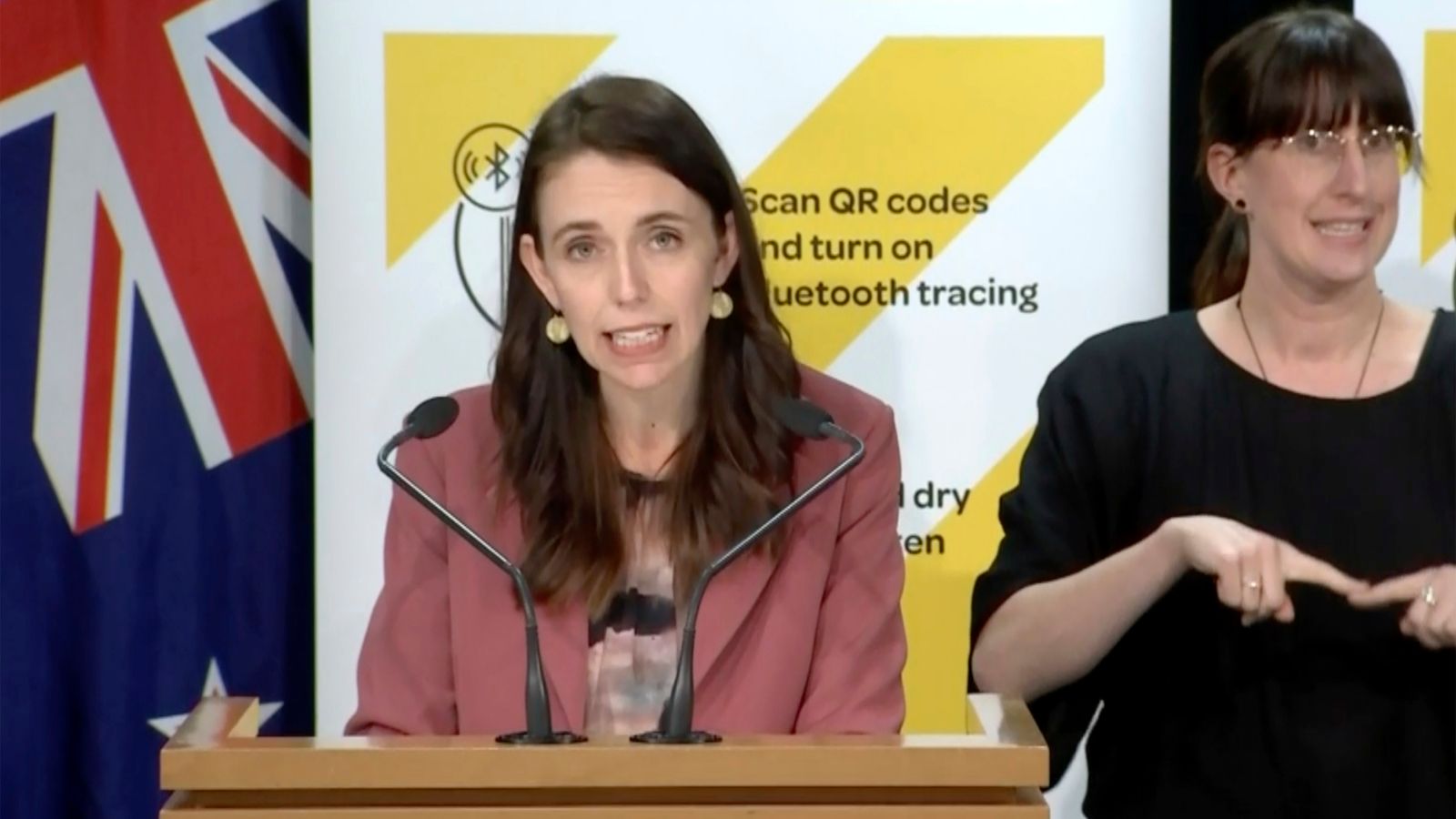New Zealand will go into lockdown for three days on Wednesday after the country recorded its first coronavirus case in six months.
Prime Minister Jacinda Ardern said the nation would be put under strict lockdown after one COVID-19 case was reported in Auckland.
The whole of New Zealand will be in lockdown for three days from Wednesday.
Follow the latest COVID updates from the UK and around the world
Auckland and Coromandel – a coastal town where the infected person also spent time – will be in lockdown for seven days.
It will mark New Zealand’s first nationwide lockdown since the country’s initial pandemic response over a year ago. Since then, regionalised alert level changes have been used to control the spread of the virus.
Under New Zealand’s toughest level 4 lockdown rules, schools, offices and all businesses will be closed, with only essential services running.
About 20% of New Zealand’s population have been fully vaccinated.
Ms Ardern told a news conference: “Delta has been a game-changer, we’re responding to that.
“The best thing we can do to get out of this as quickly as we can is to go hard.
“We have made the decision on the basis that it is better to start high and go down levels rather than to go low, not contain the virus and see it move quickly.”
The patient is a 58-year-old man who is believed to have been infectious since last Thursday.
Ms Ardern said the assumption was that the new case was a Delta variant infection, though this is not yet confirmed. The possibility of more cases was also raised.
New Zealand has not reported any community-based cases of COVID-19 since February.
The island nation has followed a “go-hard-and-early” strategy that has seen it virtually eliminate the virus within its borders – which remain largely closed to international visitors.
The strategy has allowed New Zealanders to live without restrictions.
Reported confirmed cases in the country total at around 2,500, with 26 related deaths.
Following news of a nationwide lockdown, the New Zealand dollar fell 1.5% to $0.6926.
The announcement came a day before the Reserve Bank of New Zealand is expected to become the first central back among developed nations to raise interest rates since the pandemic began.






















